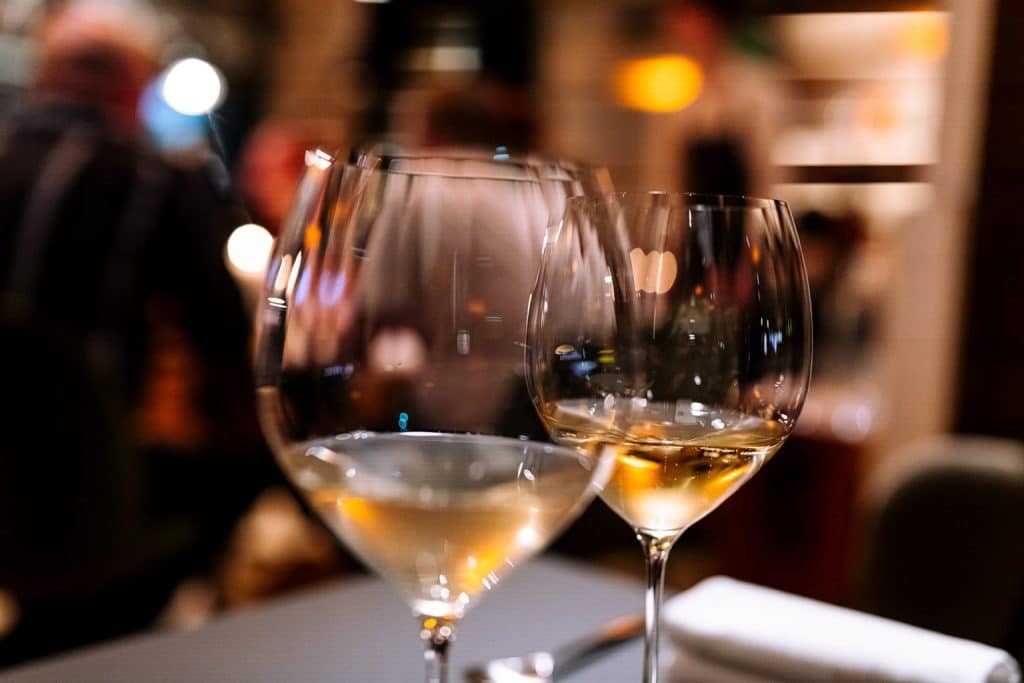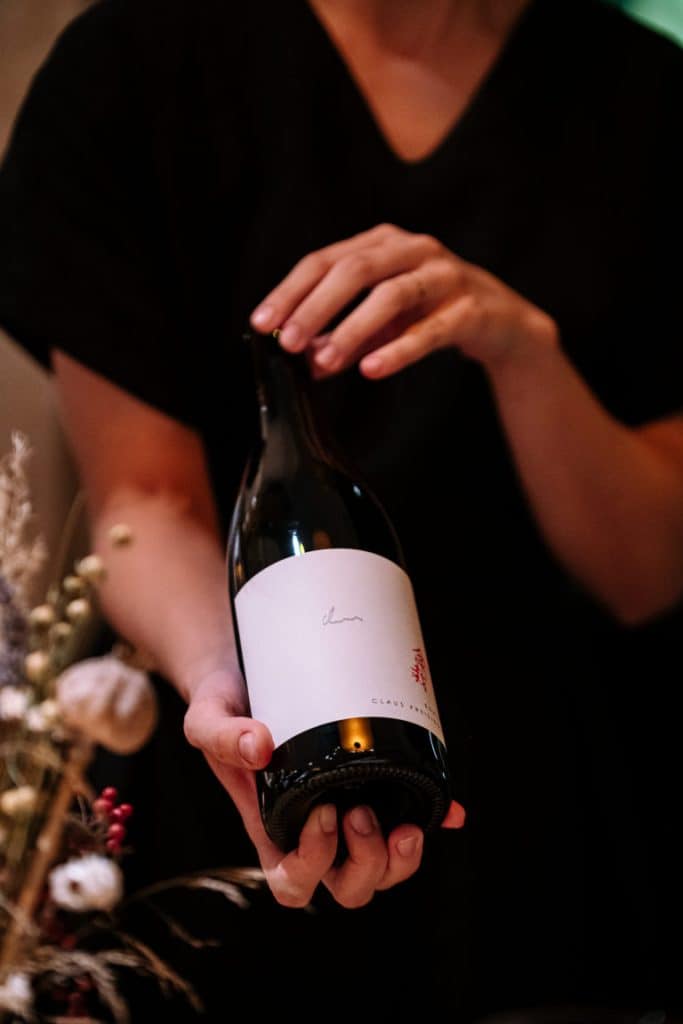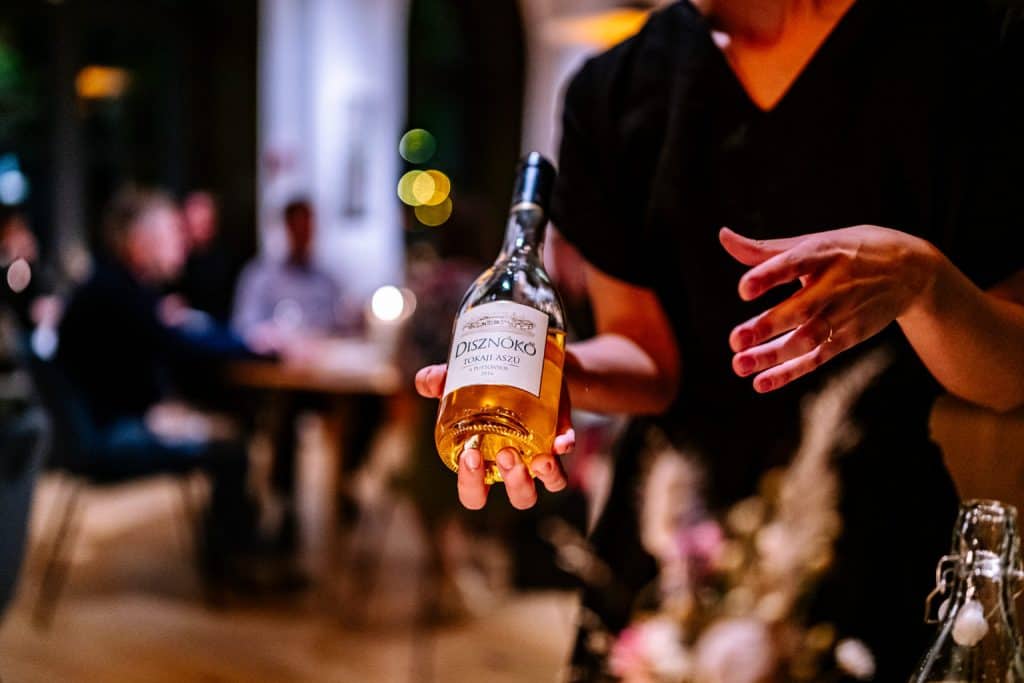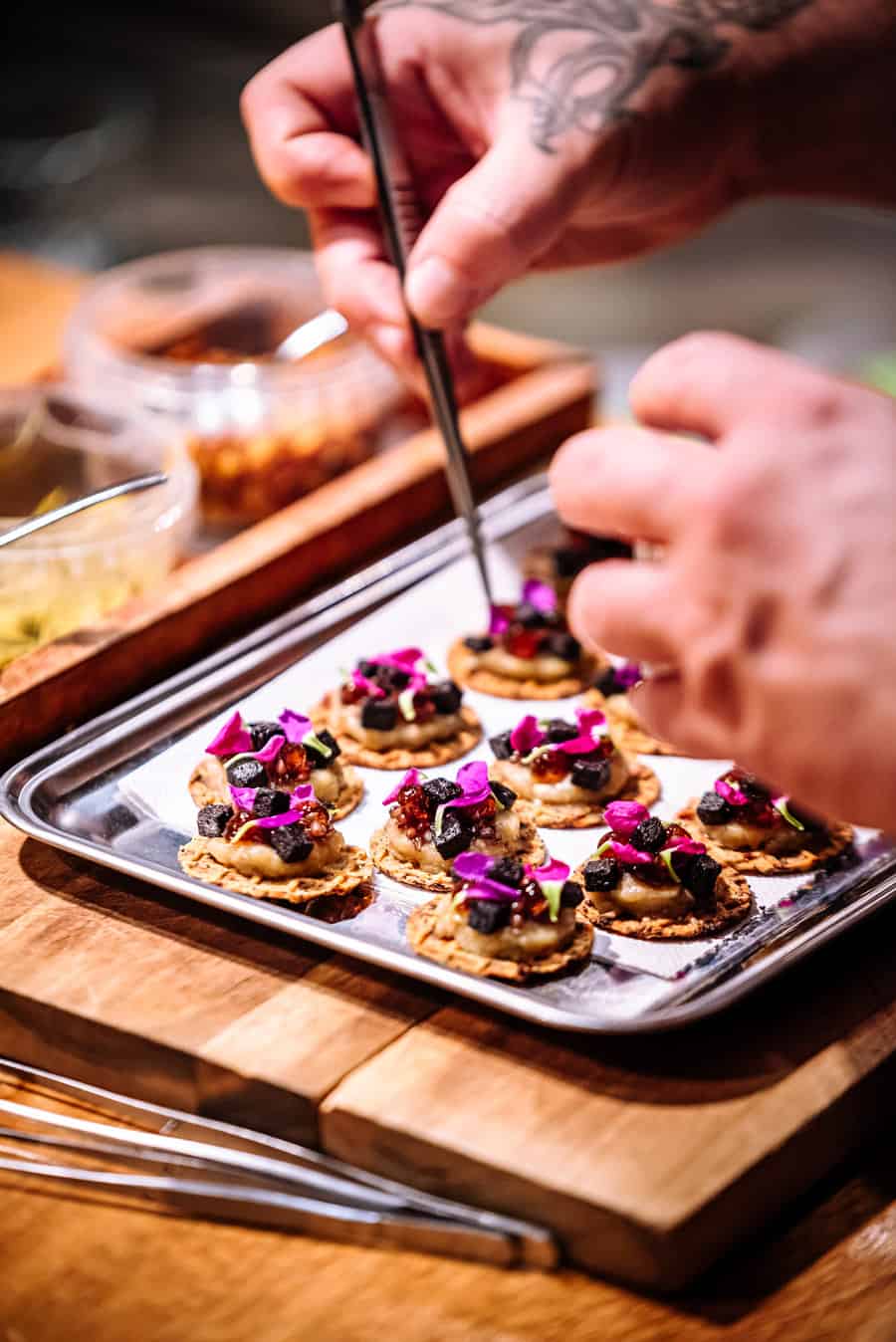Besides its Michelin star, this year, SALT was awarded a green star by the Michelin Guide, granted to restaurants making a considerable effort to operate sustainably. Many might already know how important sustainability has been for SALT’s kitchen since its foundation; however, knowing that even when designing the wine list, sustainability is a crucial consideration might surprise you. What are these aspects exactly, and how they have shaped our wine list is what we’re going to tell you about below.

Organic, natural, bio, biodynamic… what do all these terms mean?
First, let’s clarify the definitions of some basic terms as there are many miscomprehensions about what means what exactly. A classic story of our restaurant life involves the guest who’s used to conventional classic wines gasping when told to taste a wine produced by a biodynamic winery as they associate “hazy” (unfiltered), undrinkable beverages with the idea. In reality, the guest is probably thinking about natural wines and doesn’t know that biodynamics, in most cases, refers to how the grapes are cultivated and filtering, clarification, and the usage of sulfur concerns winemaking. This means that when grapes are cultivated in the spirit of biodynamics, they can still become crystal-clear conventional wines or sulfur-free, unfiltered natural wines.
To start, it’s best to differentiate if we’re talking about viticulture or winemaking.
In terms of winegrowing – to simplify – on the scale of sustainability, the first level is bio (or organic) cultivation, in which the usage of non-natural pesticides, fertilizers, and sprays is avoided. Some claim the peak of sustainability to be biodynamic cultivation, which, in itself, would be worth a longer post, but for his time, let’s summarise biodynamic practice as a type of cultivation model in which respecting and preserving nature’s harmony (retaining biodiversity, making preparations, aligning with solar and lunar phases, etc.) is key.
When we talk about this type of cultivation in the restaurant, more often than not, guests shake their heads disapprovingly. In these cases, I explain biodynamic cultivation in a nutshell as something where science is complemented by faith. The method and some of its aspects might be questionable, but the idea itself – cultivating the soil in harmonious cooperation instead of exploiting it – stands its ground. It also cannot be neglected that grapes (or other agricultural products) cultivated this way are healthy and usually high-quality. No wonder the world’s most renowned winemakers (Louis Roederer, Domaine LeRoy, Michel Chapoutier, etc.) are in the process of converting to biodynamic cultivation if they haven’t already.
For those interested in biodynamics, I recommend reading the works of Rudolph Steiner.
Organic considerations are also significant in winemaking since those making wine this way need to take into consideration that the physical and chemical structure of the wine can’t be altered. This means that the acid and sugar contents of the wine aren’t to be in or decreased artificially, or stabilizing agents aren’t to be added to prevent the precipitation of tartar or any other plant-based flocculants. In addition, biodynamic wineries also try to decrease the usage of sulfur. This is the point where we reach how natural wines are made. The main principle is that nothing should be taken away or added to the wines. Therefore, natural wines are unfiltered without any added sulfur. Around the world, the regulation of natural wines is not unified. Usually, a minimal amount of sulfur may be added to natural wines before bottling, but what is considered “minimal” is up to be decided by the given regulation. Hardcore natural winemakers opt for a “no sulfur” rule as experiences show that beautiful, balanced, characteristic beverages are created that way. There are good wines and bad wines, regardless of the method the winemaker follows. At SALT, we strive to work with good wines.

Wine list – sustainability
As mentioned in the introduction, when designing SALT’s wine list, sustainability was key, which does not necessarily mean only natural wines; however, we do try to work mostly with wineries that tend to be sustainable or operate in harmony with nature in one way or another. Besides this, we kept the following points in mind when assembling our wine list:
- Locality – Shortening the supply chain is important. That being said, European wine and champagne culture are close to our hearts that’s why we decided that including wines representing European wine regions is inevitable on the wine list of a restaurant like ours. So besides the wide range of Hungarian wines, we also have a great variety of wines from the most well-known wine regions. Large, classic wineries and smaller ones with an organic approach have a place on our offer. However, there are no wines from outside of Europe. Therefore, there’s no need to ask for a Sauvignon Blanc from New Zealand while at us.
- Putting local small producers in the spotlight – Working in harmonious cooperation with nature is possible on a small scale; that’s why we find it important to include local wineries that – just like us – focus on continuous, steady production instead of endless, unsustainable growth. We are sometimes in personal contact with small businesses that do everything from cultivation to packaging themselves, and their whole life revolves around winemaking. We enjoy taking part in some steps of their work process (such as harvesting), and they are also happy to help out our kitchen when we are in need of biodynamic rose petals or unripe grapes to make raisins. Another benefit of the way we choose whom we work with is that due to the small amounts made, several wines are only available at SALT.
- Promoting organic (biodynamic, natural, etc.) wines – This is important for us, not only from the point-of-view of sustainability. Wonderful wines are being made in Hungary and worldwide in an unconventional manner that the audience needs to know about. Simply because they’re that good.
- Education – A dinner experience in SALT is also about education. Forgotten-about or lesser-known ingredients and herbs are on the plates. We’d also like to share knowledge through our wines, drawing attention to the fact that we all need to love and cherish our environment so that coming generations have something left to enjoy. In that spirit, our mission is to decrease the distance between guests and nature.

Wines and dishes
At SALT, guests can choose from different wine pairings (or hand-made alcohol-free juice pairings that we already mentioned – and will get back to – on this platform).
Our two wine pairings (Local and European) include wines chosen on the basis of the above-mentioned considerations that would form the most exciting pairs with our dishes. In many cases, we try four-five wines so that our community can choose the best match.
It’s important for us that the wine not only accompanies the dish but elevates the experience. When deciding on a perfect match – whether we’re talking about wine or juice – it’s crucial that the dish and the beverage provide a great taste experience in itself, but tasting together, a third (possibly an entirely different) taste experience is reached. This means that we are not following written or unwritten rules when tasting but playing with free associations, creating a playground in the realm of flavors.
Since our menu is filled with naturally vibrant flavors complemented by fermented ingredients, our experience made us realize that these flavors go best with natural wines.
Our Prestige wine pairings represent a more classic approach, consisting of the wines of well-known and renowned European wineries made conventionally. Naturally, in a way that they create an exciting pair with the dishes. We recommend these pairings to guests who prefer more familiar flavors.
Our beverage pairing options:
Local wine pairing – mostly natural and organic wines from Hungary and the Carpathian Basin
European wine pairing – mostly natural and organic European wines
Prestige wine pairing – classic European wines
Alcohol-free beverage pairing – homemade juices and fermented beverages
Those who prefer not to have a beverage pairing can choose a delicious bottle of wine or bubbly (not to mention Champagnes!) from our drinks menu. Our current drinks menu can be found on our website.
Words: Máté Boldizsár

